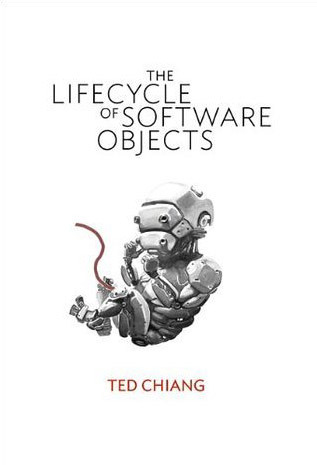Ted Chiang
The Lifecycle of Software Objects
Subterranean
150 pages
7.5
Blurb
What's the best way to create artificial intelligence? In 1950, Alan Turing wrote, "Many people think that a very abstract activity, like the playing of chess, would be best. It can also be maintained that it is best to provide the machine with the best sense organs that money can buy, and then teach it to understand and speak English. This process could follow the normal teaching of a child. Things would be pointed out and named, etc. Again I do not know what the right answer is, but I think both approaches should be tried."
The first approach has been tried many times in both science fiction and reality. In this new novella, at over 30,000 words, his longest work to date, Ted Chiang offers a detailed imagining of how the second approach might work within the contemporary landscape of startup companies, massively-multiplayer online gaming, and open-source software. It's a story of two people and the artificial intelligences they helped create, following them for more than a decade as they deal with the upgrades and obsolescence that are inevitable in the world of software. At the same time, it's an examination of the difference between processing power and intelligence, and of what it means to have a real relationship with an artificial entity.
Review
There are two kinds of my favorite writer: one who can write beautifully and enthralls me with their handsomely crafted plot and one who can fascinate me with their grand idea and execute it perfectly. Ted Chiang belongs to the latter.
Of all his other opuses that I've read, The Lifecycle of Software Objects is probably the least hardcore. The concept, while it's still full of strange words, is somehow still understandable and easy to read. The story itself still offers speculative about artificial intelligence, in the form of cute pets called digients, and what it means to have a strong relationship with an AI, to question the position of AI in real world, and everything.
While The Lifecycle of Software Objects doesn't have mindblowing twist, likeStory of Your Life or Hell is the Absence of God, it still has the philosophical atmosphere about the meaning of life-existence. The conflict is barely there, as Chiang writes the story more likely to provoke our mind to think about the fate of AI. When AI has gained the same intelligence with human being, and they can express their "feeling" and everything, will that make their status become human as well? What defines human being? What defines AI? If not, do we have a right to decide for AI? In The Lifecycle of Software Objects, we will be guided by two main characters who have invested their time in these digients, and who have formed such strong bonds with them, to answer these questions. Eventually, it leads to the ultimate question: is relationship with AI something real?
The story can be read legally here.
Of all his other opuses that I've read, The Lifecycle of Software Objects is probably the least hardcore. The concept, while it's still full of strange words, is somehow still understandable and easy to read. The story itself still offers speculative about artificial intelligence, in the form of cute pets called digients, and what it means to have a strong relationship with an AI, to question the position of AI in real world, and everything.
While The Lifecycle of Software Objects doesn't have mindblowing twist, likeStory of Your Life or Hell is the Absence of God, it still has the philosophical atmosphere about the meaning of life-existence. The conflict is barely there, as Chiang writes the story more likely to provoke our mind to think about the fate of AI. When AI has gained the same intelligence with human being, and they can express their "feeling" and everything, will that make their status become human as well? What defines human being? What defines AI? If not, do we have a right to decide for AI? In The Lifecycle of Software Objects, we will be guided by two main characters who have invested their time in these digients, and who have formed such strong bonds with them, to answer these questions. Eventually, it leads to the ultimate question: is relationship with AI something real?
The story can be read legally here.

EmoticonEmoticon